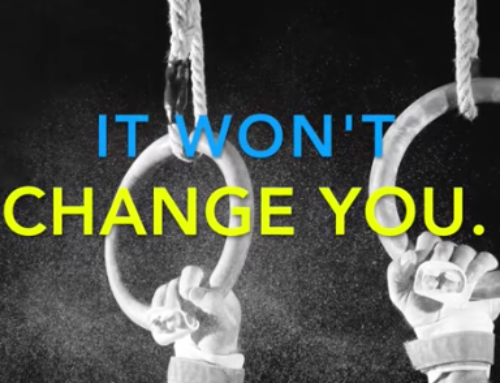This is a great post, written by Dr. Patrick Cohn, about why a ‘perfectionist’ attitude in athletes can be dangerous. As a former elite gymnast, one of the best pieces of advice I received during a competition came from one of my teammates in the meet, 3-time Olympian, John Roethlisberger. As we approached pommel horse, John told the team (slightly paraphrased) “It
In my mind, those words gave me permission to do whatever I had to do to hit my routine. It was reassurance that my teammates weren’t expecting perfection from me, but that they were expecting to see me fight and scrap to hit my routine at all costs. It might be ugly, but I knew I was willing to give everything I had.
To me, the most thrilling and enjoyable part of sports and competition is the struggle. Perfection is over-rated. Enjoy the following article and be sure to post your comments.
Jay Thornton
American Gymnast
————————————–
Striving for the Perfect Performance? The Dangers of Perfectionism
Do you believe in the attitude “anything less than perfect is unacceptable”?
Do you freak out after making one or two mistakes in a competition?
Many athletes label themselves as “perfectionists” as if it is a good thing.
These athletes believe they need to perform perfectly to be at their best and they desperately search for “the perfect play,” “the perfect routine” or “the perfect game.”
You have probably thought, “Why would I settle for anything less than the best.”
So you enter a competition with high expectations and put tremendous pressure on yourself to perform at your BEST level.
Many athletes hold onto the perfectionist ideal despite knowing the dangers of perfectionism.
The problem lies in the misconception that performing your best means performing perfectly.
I interviewed Dr. Ken Ravizza–a past mentor of mine–about perfectionism.
Dr. Ken Ravizza is a professor of Applied Sport Psychology at the California State University at Fullerton.
Ravizza is one of the top Peak Performance Consultants in the world today and has served as a consultant to numerous professional sports organizations including the New York Jets, Los Angeles Angels of Anaheim, Los Angeles Dodgers, Los Angeles Galaxy, and the Toronto Argonauts.
Ravizza’s summed up by his opinion about perfectionism, “Don’t have a great performance, just have a good performance. Just have a good performance, stop worrying about being great all the time. Just be good… because great is going to come out of good.”
COHN: Why do athletes feel the need like they have to be so great all the time? Do you think it’s from that perfectionist belief?
RAVIZZA: I think it’s the perfectionist belief… it’s going to lead to over-trying and tightening up. When you’re a kid and you’re playing that’s where they really play with spontaneity, and they’re totally engaged in it…. And you weren’t worried about how you felt, and how your mechanics were, and your focus. You just played. You competed.
RAVIZZA: [Perfectionists] want it just right, and when it isn’t just right, they start freaking out. They start losing it, because it’s got to be exactly the way it should be. And my perspective is, I tell the athlete, “Are you that terrible an athlete that you have to feel great to perform well? And they go, “No.” And I say, “So then why do you get so upset by that stuff?”
But the perfectionist, it’s a double-edged sword. I mean the perfectionism drives you when you’re young, because you’re always going to work hard, but the negative side of it is, you always have that critic on your back who’s telling you you’re not good enough.
Tips to overcome your perfectionist ways:
Tip #1: Remind yourself you are human and its okay for humans to make mistakes. It’s how you react to mistakes that’s critical to your performance.
Tip #2: You should realize that you don’t need to perform mistake-free to perform successfully. Strive for improvement, but avoid setting expectations about your performance that prices in perfection.
Listen to an excerpt of the interview with Dr. Ken Ravizza on our blog here:
Dr. Ken Ravizza Interview Excerpt
-For Peaksports Members-
Listen to and download the full interview with Dr. Ken Ravizza and many other top sports psychologists on this page:
Your Mental Coach,
Dr. Patrick Cohn
P.S. This is one of our 14 exclusive interviews with top sports mental game experts in our “Champion’s Mindset” series. Make sure to check out all 14 interviews on our Peak Performance Sports Network, where you can listen, download and read the transcripts of each interview.






Hi there this is somewhat of off topic but I was wondering if
blogs use WYSIWYG editors or if you have to manually code with HTML.
I’m starting a blog soon but have no coding experience so I wanted to get guidance from someone with
experience. Any help would be enormously appreciated!